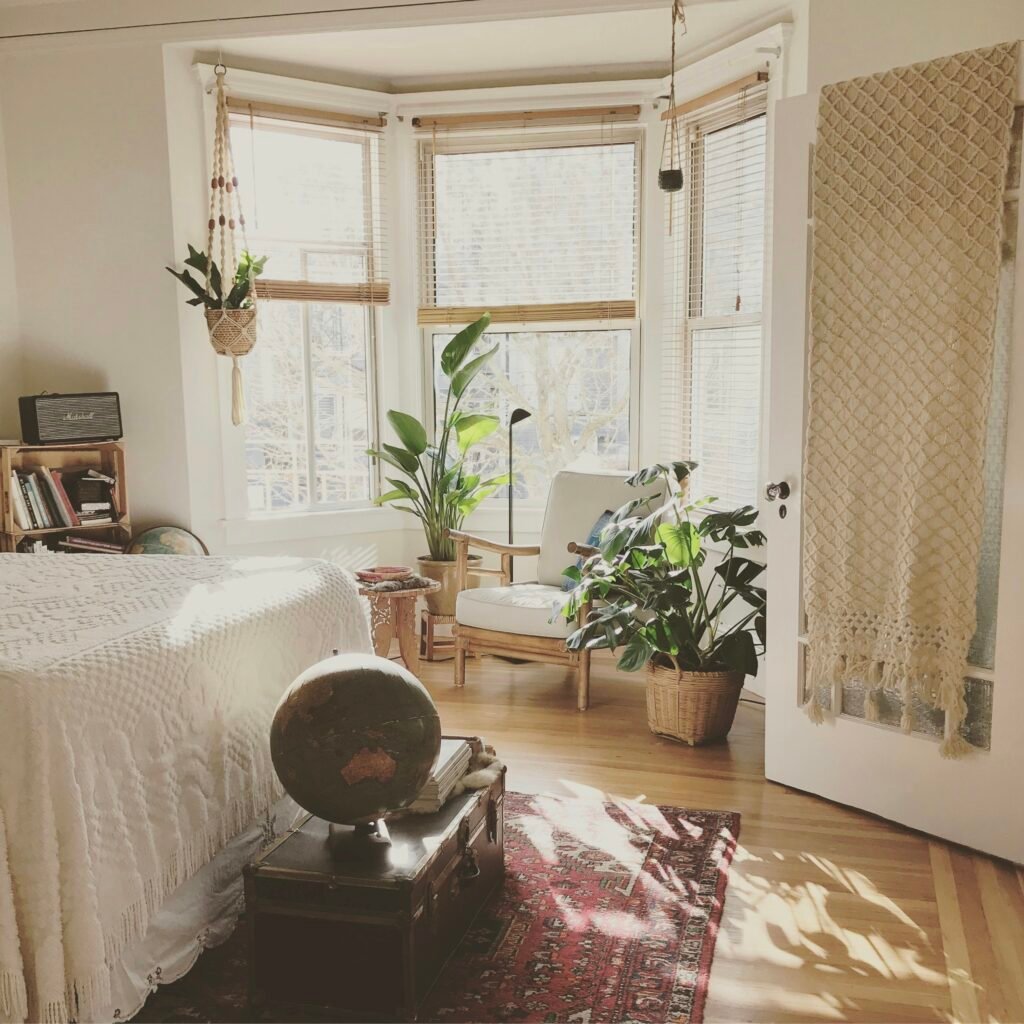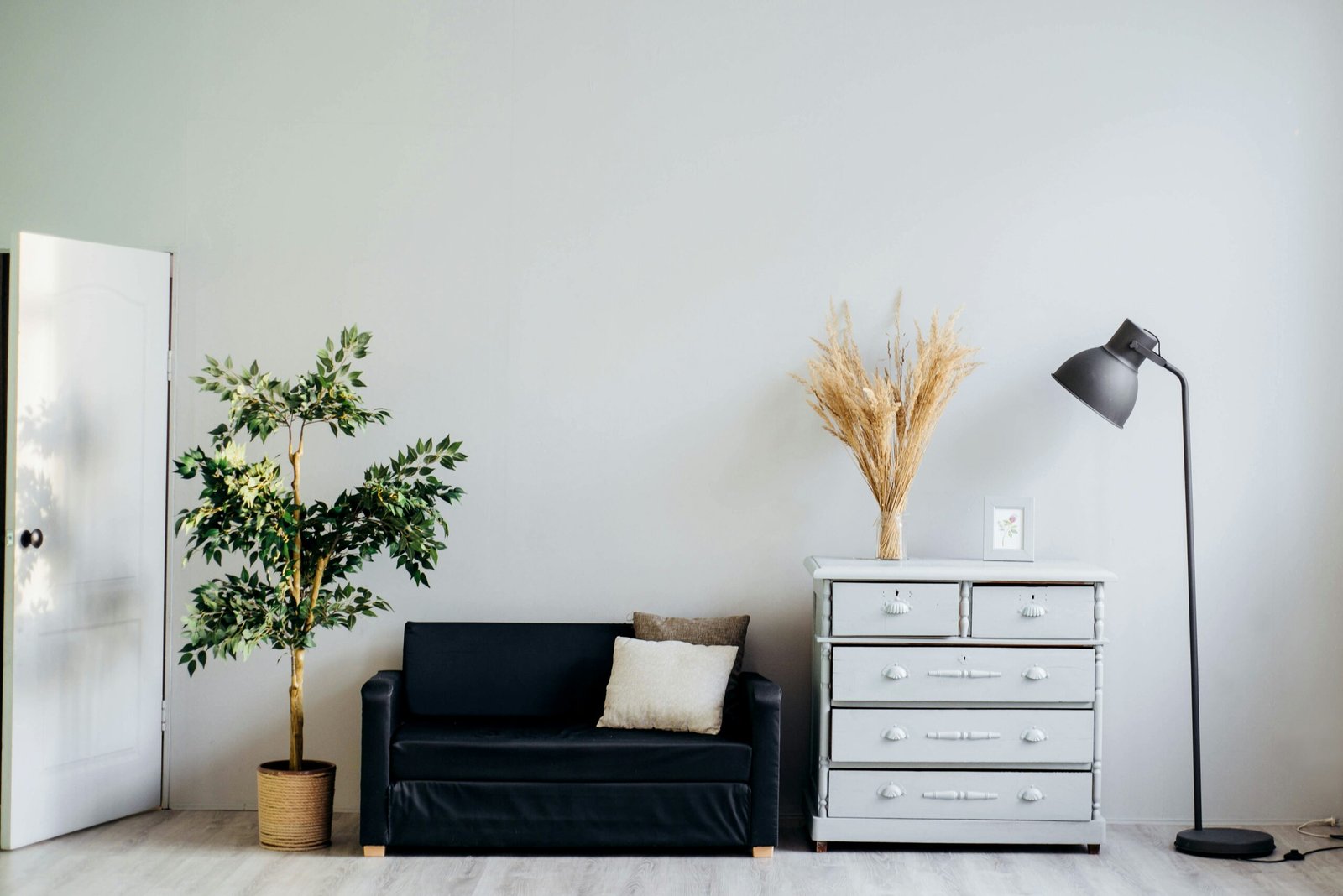Simple Steps for Wellness at Home
Are you looking for easy ways to enhance your wellness right from the comfort of your own home? Look no further! In this article, we will explore simple steps that you can incorporate into your daily routine to promote a healthier and happier lifestyle. From practicing mindfulness to engaging in physical activities, we have got you covered. So, grab a cup of tea, settle into your favorite spot, and get ready to discover the secrets to achieving wellness at home.

This image is property of images.unsplash.com.
Physical Exercise
Physical exercise is an important aspect of maintaining a healthy lifestyle, even when you are at home. Designating a specific workout space in your home can help create a dedicated area for exercise, making it easier to stay motivated. Whether it’s a spare room, a corner of your living room, or even just a yoga mat on the floor, having a designated space can help you get in the right mindset for your workouts.
Creating a schedule for regular exercise is also crucial. Set aside specific times throughout the week to dedicate to physical activity. This could be in the morning before you start your day, during a lunch break, or in the evening. By scheduling your workouts, you are more likely to follow through and make exercise a consistent part of your routine.
Virtual fitness classes have become increasingly popular, and they offer a great way to stay active at home. Many gyms and fitness studios now offer online classes that you can access from anywhere. Whether it’s a high-intensity interval training (HIIT) session, a dance fitness class, or even a yoga flow, there are numerous options available to cater to your interests and fitness level.
Incorporating stretching and yoga into your routine is also essential for maintaining flexibility and mobility. Carve out dedicated time for stretching exercises or try following along with a yoga video. Not only will this help prevent injuries, but it will also promote relaxation and reduce muscle tension.
Lastly, remember to take breaks from sitting and move around regularly. If you have a sedentary job or find yourself sitting for long periods of time, it’s important to get up and move your body. Take short breaks every hour to stretch, walk around, or do some light exercises. This will not only help keep your body active but also improve your focus and productivity throughout the day.
Healthy Eating
Promoting a healthy diet is essential for overall wellness. Planning your meals in advance can help you stay on track and make healthier choices. Set aside some time each week to plan your meals, create a grocery list, and prep ingredients. This will make it easier to stick to nutritious meals instead of relying on convenience or unhealthy options when hunger strikes.
Including plenty of fruits and vegetables in your diet is a key component of healthy eating. Aim to fill half of your plate with fruits and vegetables at each meal. They are packed with essential vitamins, minerals, and fiber that are vital for maintaining good health. Try to experiment with different types of produce to add variety and make your meals more interesting.
Drinking enough water throughout the day is often overlooked but is crucial for overall health. Staying hydrated supports proper digestion, helps regulate body temperature, and keeps your skin looking healthy. Aim to drink at least 8 glasses of water per day, and remember that herbal teas and water-rich foods like fruits and vegetables can also contribute to your hydration needs.
Avoiding excessive snacking is another important aspect of healthy eating. While it’s okay to snack occasionally, mindless snacking or relying on sugary and processed snacks can lead to weight gain and an unhealthy diet. Choose healthier alternatives like nuts, seeds, or fresh fruits when you feel the need for a snack.
Furthermore, it’s important to limit processed and sugary foods in your diet. These types of foods can be high in calories, unhealthy fats, and added sugars, which can negatively impact your health. Opt for whole, unprocessed foods whenever possible and limit your intake of sugary drinks and desserts.

This image is property of images.unsplash.com.
Quality Sleep
Getting enough quality sleep is vital for overall well-being. Establishing a consistent sleep schedule is key to ensure your body gets the rest it needs. Try to go to bed and wake up at the same time every day, even on weekends. This will help regulate your body’s internal clock and improve the quality of your sleep.
Creating a relaxing bedtime routine can help signal to your body that it’s time to wind down and prepare for sleep. This can include activities such as reading a book, taking a warm bath, or practicing relaxation techniques like deep breathing or meditation. Find what works best for you and incorporate it into your nightly routine.
Ensuring your bedroom is dark and quiet is crucial for promoting quality sleep. Consider using blackout curtains or an eye mask to block out any outside light. If noise is an issue, try using earplugs or a white noise machine to create a calm and peaceful environment to help you drift off to sleep.
Using comfortable bedding and pillows can greatly enhance your sleep experience. Invest in a good quality mattress that provides the necessary support for your body. Pillows that cater to your preferred sleeping position can also improve your comfort and help prevent any neck or back pain.
Avoiding electronic devices before bed is important as the blue light emitted from screens can interfere with your body’s natural sleep-wake cycle. Try to eliminate screen time at least an hour before bed. Instead, engage in relaxing activities such as reading a book, journaling, or listening to calming music to promote a restful state for sleep.
Mental Relaxation
In addition to taking care of your physical well-being, it’s crucial to prioritize your mental health and find ways to relax and unwind. Practicing meditation or mindfulness can be incredibly beneficial for reducing stress and promoting mental clarity. Take a few minutes each day to sit in a quiet space, close your eyes, and focus on your breath or practice guided meditation using apps or online resources.
Deep breathing exercises are another effective way to promote relaxation and reduce stress. Whether it’s taking a few deep breaths or trying techniques such as diaphragmatic breathing or box breathing, these exercises can help calm your mind and bring a sense of tranquility to your day.
Engaging in hobbies or activities you enjoy is a great way to relax and promote your overall well-being. Whether it’s painting, gardening, playing an instrument, or reading, find activities that bring you joy and make time for them regularly. These activities can provide a much-needed break from daily stressors and allow you to fully immerse yourself in something you love.
Spending time in nature or outdoors can have a positive impact on your mental health. Take walks in your local park, go hiking, or simply sit in your garden or balcony and enjoy the fresh air. Being in nature has a calming effect and can help reduce anxiety and increase feelings of happiness and well-being.
Listening to calming music or podcasts is another great way to relax and unwind. Create a playlist of soothing music or find podcasts that focus on topics such as mindfulness, personal development, or relaxation techniques. Take some time each day to listen to these audios and allow your mind to rest and rejuvenate.

This image is property of images.unsplash.com.
Maintaining Hygiene
Maintaining good hygiene is not only important for physical health but also for mental well-being. Following a regular showering routine is essential to keep your body clean and refreshed. Make it a habit to shower at least once a day, and if you engage in physical exercise or sweat excessively, consider showering more frequently.
Keeping your living space clean and organized can have a significant impact on your overall well-being. A cluttered and messy space can contribute to feelings of stress and overwhelm. Dedicate some time each day to tidy up your surroundings, put away items, and ensure your living space feels clean and inviting.
Washing your hands frequently is crucial for preventing the spread of germs and viruses. Remember to wash your hands with soap and water for at least 20 seconds, especially after using the restroom, before eating, and after coming into contact with surfaces in public places. If soap and water are not readily available, use hand sanitizer with at least 60% alcohol.
Taking care of your dental hygiene is also important for your overall health. Brush your teeth at least twice a day for two minutes each time and don’t forget to floss daily. Additionally, consider scheduling regular dental check-ups to maintain optimal oral health.
Changing into fresh clothes daily is another simple yet effective way to maintain hygiene. Clean clothes not only make you feel fresh and comfortable, but they also help prevent the buildup of bacteria and odors. Avoid wearing the same clothes for extended periods, especially after physical activity or excessive sweating.
Stay Connected
Even when physically distanced, it’s important to stay connected with friends and family to support your mental and emotional well-being. Schedule virtual hangouts or video calls with your loved ones to catch up and maintain social connections. This can be as simple as having a virtual dinner date, playing online games together, or just chatting about your day.
Joining online communities with shared interests can provide a sense of belonging and connection. Whether it’s a Facebook group, an online forum, or a virtual book club, find a community that aligns with your interests and actively participate. Engaging with like-minded individuals can help combat feelings of isolation and foster a sense of community.
Reach out for emotional support when needed. It’s important to recognize that it’s okay to not be okay and that seeking help is a sign of strength. If you find yourself struggling with your mental health or facing challenges in your life, don’t hesitate to reach out to a trusted friend, family member, or even a professional counselor. They can provide support and guidance during difficult times.
Writing letters or sending cards to loved ones is a heartfelt way to stay connected and show you care. In a world dominated by digital communication, receiving a handwritten letter or card can bring joy and warmth to someone’s day. Take some time to write a thoughtful message and mail it to someone you care about.
Engaging in video calls instead of just texting can help foster a deeper connection with your loved ones. While texting is convenient, hearing someone’s voice and seeing their facial expressions adds an extra layer of connection. Make an effort to schedule video calls when possible, especially when catching up with friends or family you haven’t seen in a while.
Mindful Technology Use
In today’s digital age, it’s important to set boundaries for screen time to maintain a healthy balance between technology use and personal well-being. Determine how much time you want to allocate to screen-related activities each day, such as work tasks, social media, or entertainment. Setting clear boundaries will help prevent excessive use and allow for more mindful engagement with technology.
Taking regular digital detoxes can also have significant benefits for your mental well-being. Designate specific periods of time, such as a few hours or even a whole day, to disconnect from your devices. Use this time to engage in activities that don’t involve screens, such as reading, spending time in nature, or practicing hobbies.
Unsubscribing from unnecessary email subscriptions is a simple yet effective way to reduce digital clutter and minimize distractions. Go through your inbox and unsubscribe from newsletters or promotional emails that no longer serve you. By decluttering your inbox, you’ll feel more organized and focused when checking your emails.
Use phone apps for relaxation and meditation. In addition to using your phone for work or entertainment, there are also numerous apps available that can support your mental and emotional well-being. Explore meditation apps, relaxation guides, or sleep aids to help incorporate mindfulness practices into your daily routine. These apps often provide guided exercises and techniques to help you relax and find inner peace.
Utilize productivity tools to stay organized and manage your tasks effectively. There are various applications and software available that can help you stay on top of your schedule, set reminders, and organize your priorities. Find tools that work for you and integrate them into your daily routine to enhance your productivity and reduce stress.
Create a Calming Environment
Creating a calming environment in your home can greatly contribute to your overall wellness. Aromatherapy with essential oils is a popular method to create a soothing atmosphere. Invest in a diffuser and experiment with different essential oils such as lavender, chamomile, or eucalyptus to promote relaxation and stress relief.
Decluttering and simplifying your living space can also have a significant impact on your well-being. Remove unnecessary items and belongings that no longer serve a purpose. By creating a clean and clutter-free environment, you’ll feel more relaxed and at ease in your own home.
Bringing in natural light and opening windows can instantly uplift the mood and create a sense of openness and freshness. Allow as much natural light into your home as possible during the day. Open windows to let in fresh air and circulate stagnant air. Not only will this make your space feel more vibrant, but it will also contribute to better indoor air quality.
Decorating with calming colors and artwork can have a positive impact on your mental state. Consider choosing soft and muted colors for your walls, furniture, and décor. Blue, green, and neutral tones can create a serene and tranquil atmosphere. Hang artwork or photographs that evoke feelings of peace and joy to enhance the calming ambiance.
Using noise-cancelling headphones or white noise machines can help drown out unwanted sounds and create a peaceful environment. Noise pollution can be detrimental to your well-being and sleep quality. Invest in quality headphones or a white noise machine to block out disturbances and promote a sense of tranquility.
Self-Care Activities
Engaging in self-care activities is essential for maintaining your physical, mental, and emotional well-being. Take warm baths or indulge in spa-like experiences at home to relax your body and mind. Add Epsom salts or essential oils to your bathwater, light some candles, and play calming music to create a peaceful ambiance that allows you to unwind and destress.
Reading books and watching movies that inspire you can provide a much-needed escape and stimulate your imagination. Choose genres or topics that you find intriguing and spend time diving into captivating stories or educational content. These activities can help you relax, expand your knowledge, and foster a sense of self-growth.
Practicing gratitude and journaling can have a profound impact on your mental well-being. Set aside time each day to reflect on the things you are grateful for and write them down in a journal. This simple practice can shift your mindset to focus on the positive aspects of your life and cultivate feelings of contentment and happiness.
Pampering yourself with skincare or grooming routines can increase your self-confidence and boost your mood. Establish a skincare routine that suits your skin type and invest in quality products. Take the time to care for your skin, and you’ll not only look good but also feel refreshed and rejuvenated.
Engage in positive affirmations and self-reflection to promote self-love and personal growth. Repeat positive affirmations daily to affirm your self-worth and reinforce a positive mindset. Take moments throughout the day to reflect on your thoughts, emotions, and actions, and make conscious efforts to cultivate self-compassion and acceptance.
Stress Management
Stress is a common part of life, and learning effective stress management techniques is crucial for your overall well-being. Identifying and addressing the sources of stress in your life is the first step toward finding relief. Take a moment to reflect on the aspects of your life that are causing the most stress, and explore ways to mitigate or eliminate them if possible.
Practicing time management and prioritizing tasks can significantly reduce feelings of overwhelm and stress. Break down your tasks into smaller, manageable steps, and create a schedule or to-do list to keep track of your responsibilities. By organizing your time effectively, you can avoid procrastination and complete your tasks more efficiently.
Seeking professional help or counseling is important if you find yourself struggling with chronic stress or mental health issues. Sometimes, talking to a professional can provide valuable support and guidance. Don’t hesitate to reach out to a therapist or counselor who can help you develop effective coping strategies and manage stress in a healthy way.
Engaging in stress-reducing hobbies like painting or gardening can be highly therapeutic. Find activities that help you relax and provide an outlet for your creativity or emotions. Whether it’s painting, gardening, knitting, or any other hobby, carve out time in your schedule to indulge in activities that bring you joy and help alleviate stress.
Implementing relaxation techniques such as progressive muscle relaxation can help reduce tension and promote a sense of calm. This technique involves methodically tensing and releasing different muscle groups in your body to achieve physical and mental relaxation. Practice this technique whenever you feel stressed or anxious, and you’ll notice a significant difference in your overall well-being.
In conclusion, creating a comprehensive wellness routine at home is essential for taking care of your physical, mental, and emotional well-being. By incorporating regular exercise, healthy eating, quality sleep, mental relaxation techniques, good hygiene practices, staying connected with loved ones, mindful technology use, creating a calming environment, engaging in self-care activities, and stress management techniques, you can greatly enhance your overall wellness and improve your quality of life. Remember to listen to your body, prioritize your needs, and make self-care a priority in your daily life.
